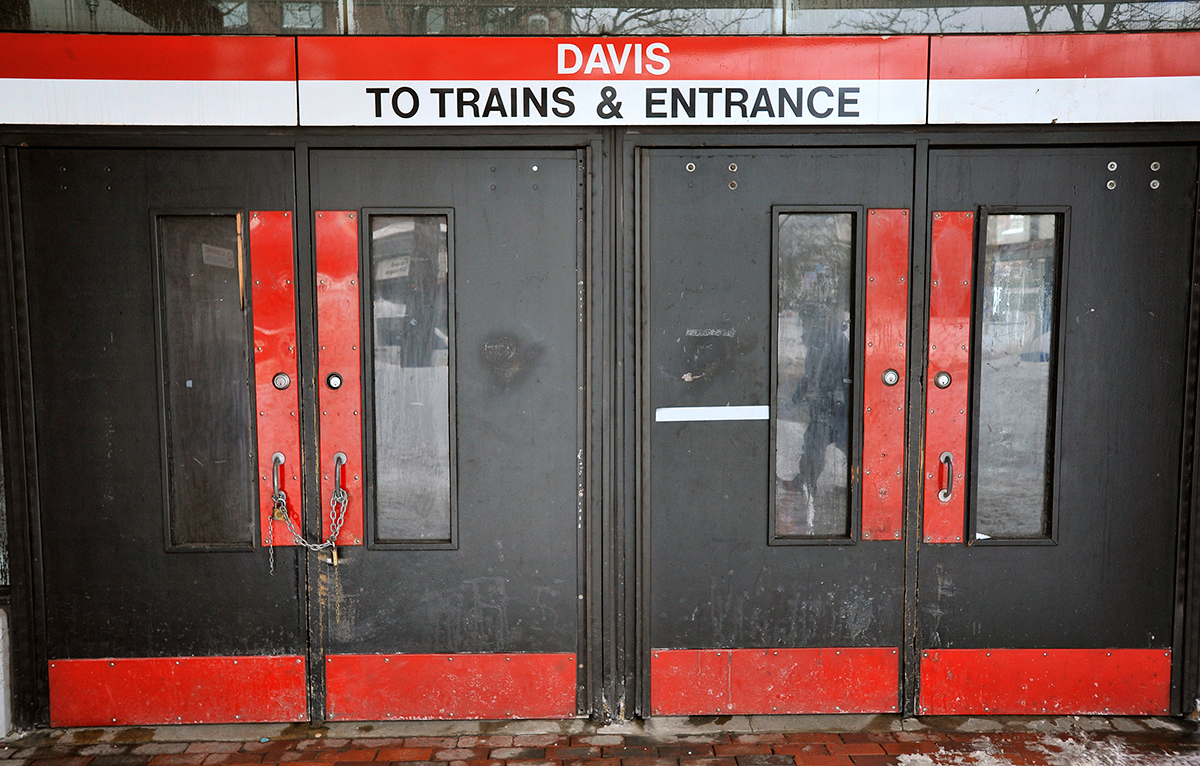Lawmaker Says MBTA’s Snow Mistakes Were ‘Kind of Basic’

Photo via AP
Given the state of the MBTA this past winter, we have a lot to learn from our peers who run mass transit systems in other cities during the winter season.
That’s according to Frank DePaola, the T’s interim general manager, the AP reports. DePaola told lawmakers Monday what transit experts from New York, Chicago, Philadelphia, New Jersey, and Toronto had to say about our winter performance. Their peer review, he says, revealed a bunch of practices that Boston wasn’t undertaking during snowy weather. DePaola said, for instance, that other cities use special maintenance trains to clear snow from the tracks. In Boston, we use passenger trains retrofitted with plows. Other cities also use deicing fluid to make sure the third rail doesn’t freeze. Boston hadn’t been using such fluid because they feared it would corrode the rail—but it turns out there exists some newer noncorrosive anti-icing fluids we just didn’t know about.
Representative Evandro C. Carvalho, as quoted in the Boston Globe, probably spoke for a lot of us when he responded, “I’m no expert — but the anti-icing thing and that you shouldn’t be using the Red and Orange line cars to clear snow, sounded, to me, kind of basic.”
That’s frustrating when you realize that some of the hassle T commuters faced this winter might have been avoided. That frustration aside, though, it is encouraging to imagine some quick fixes might markedly improve the T’s performance. Many of the changes that would really help the system survive the long winter, like replacing outdated equipment, require bigger chunks of money. But as those don’t seem forthcoming, let this peer review at least provide some hope.
And let it encourage us to continue communicating with peer transit agencies in other cities, too. Back when MBTA General Manager Beverly Scott resigned abruptly in the midst of the T’s winter struggles, the Boston Herald ran a cover story “exposing” Scott’s budget for travel to transit conferences around the country. Given the American Public Transportation Association, an organization whose conference Scott scandalously attended in October, put together this most recent peer-review—you know, the one that revealed a bunch of simple ways the MBTA could do better during bad winter weather—let’s erase any doubt that there is value in building relationships with transit experts from other cities.
Scott’s expense reports are certainly worthy of scrutiny, but the question is no longer “Why was Scott traveling to these conferences?” but “Why was Boston still not using some of these best practices, even when they were relatively easy to implement?” Hopefully this peer review only further encourages the MBTA to look to its peers for solutions in times of trouble.


